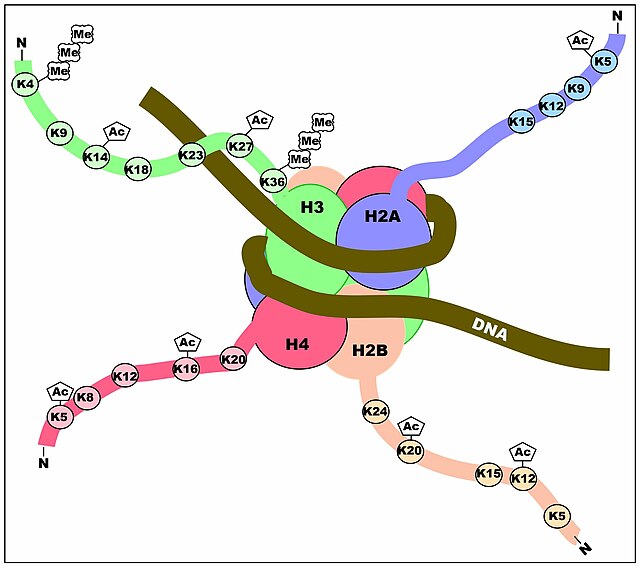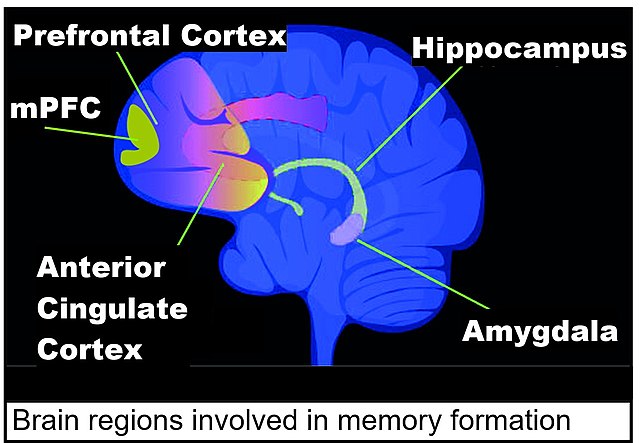In biology, epigenetics is the study of heritable traits, or a stable change of cell function, that happen without changes to the DNA sequence. The Greek prefix epi- in epigenetics implies features that are "on top of" or "in addition to" the traditional genetic mechanism of inheritance. Epigenetics usually involves a change that is not erased by cell division, and affects the regulation of gene expression. Such effects on cellular and physiological phenotypic traits may result from environmental factors, or be part of normal development. They can lead to cancer.

Some acetylations and some methylations of lysines (symbol K) are activation signals for transcription when present on a nucleosome, as shown in the top figure. Some methylations on lysines or arginine (R) are repression signals for transcription when present on a nucleosome, as shown in the bottom figure. Nucleosomes consist of four pairs of histone proteins in a tightly assembled core region plus up to 30% of each histone remaining in a loosely organized tail
including medial prefrontal cortex (mPFC)
Cytosine and 5-methylcytosine
Image: Histone tails set for transcriptional repression
Regulation of gene expression
Regulation of gene expression, or gene regulation, includes a wide range of mechanisms that are used by cells to increase or decrease the production of specific gene products. Sophisticated programs of gene expression are widely observed in biology, for example to trigger developmental pathways, respond to environmental stimuli, or adapt to new food sources. Virtually any step of gene expression can be modulated, from transcriptional initiation, to RNA processing, and to the post-translational modification of a protein. Often, one gene regulator controls another, and so on, in a gene regulatory network.
Overview of Epigenetic mechanisms.
The identified areas of the human brain are involved in memory formation.






